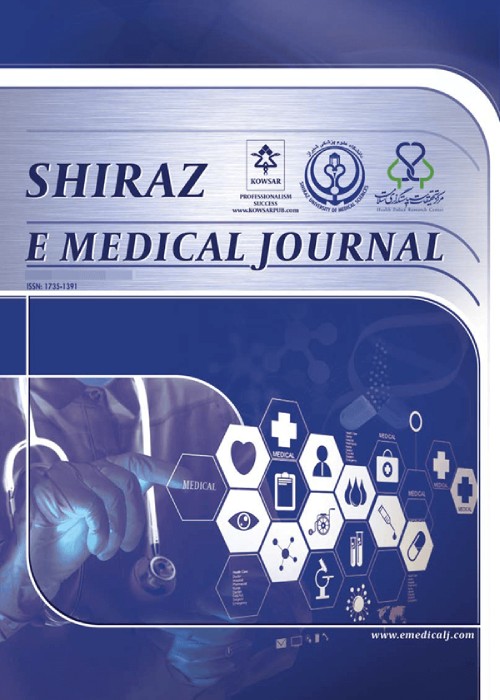The Role of Preoperative Knowledge and Self-Efficacy in Predicting Postoperative Anxiety, Depression, and Vision-Related Quality of Life in Elderly Patients with Macular Degeneration Undergoing Retinal Surgery in Shiraz, Iran, 2016
Author(s):
Article Type:
Research/Original Article (دارای رتبه معتبر)
Abstract:
Background
Age-related macular degeneration (AMD) and subsequent retinal detachment are one of the most common disorders in the elderly, which are treated with surgery. Performing eye surgery leads to psychological distress and affects the lives of the patients. The current study was an attempt to determine the predicting role of preoperative knowledge and self-efficacy in postoperative anxiety, depression, and vision-related quality of life among elderly patients with macular degeneration undergoing retinal surgery in Shiraz, Iran.Methods
In this cross-sectional cohort study, 168 elderly patients with AMD who were candidates for retinal surgery were selected to be studied using purposive sampling. The study tools include the Persian version of HADS questionnaire, visual function index (VFQ-14), and self-efficacy and knowledge questionnaire, which were filled out by the elderly patients in three stages: before the surgery, after the surgery, and at follow-up. Partial correlation coefficient and General Linear Model analysis were used to achieve the objectives of the study.Results
The results revealed that there was a significant relationship between preoperative self-efficacy and depression (P = 0.01) and vision-related quality of life (P = 0.05), as well as between preoperative knowledge and depression (P = 0.05) at follow-up (two months after the surgery). According to the general linear regression analysis, preoperative self-efficacy was identified as the predictor of depression and vision-related quality of life at follow-up. In addition, preoperative knowledge was recognized as the predictor of depression.Conclusions
Based on the results, in designing training interventions, self-efficacy and knowledge need to be considered as the important predictors of patients psychological outcomes after the surgery. Keywords:
Language:
English
Published:
Shiraz Emedical Journal, Volume:19 Issue: 9, Sep 2018
Page:
4
magiran.com/p1877346
دانلود و مطالعه متن این مقاله با یکی از روشهای زیر امکان پذیر است:
اشتراک شخصی
با عضویت و پرداخت آنلاین حق اشتراک یکساله به مبلغ 1,390,000ريال میتوانید 70 عنوان مطلب دانلود کنید!
اشتراک سازمانی
به کتابخانه دانشگاه یا محل کار خود پیشنهاد کنید تا اشتراک سازمانی این پایگاه را برای دسترسی نامحدود همه کاربران به متن مطالب تهیه نمایند!
توجه!
- حق عضویت دریافتی صرف حمایت از نشریات عضو و نگهداری، تکمیل و توسعه مگیران میشود.
- پرداخت حق اشتراک و دانلود مقالات اجازه بازنشر آن در سایر رسانههای چاپی و دیجیتال را به کاربر نمیدهد.
In order to view content subscription is required
Personal subscription
Subscribe magiran.com for 70 € euros via PayPal and download 70 articles during a year.
Organization subscription
Please contact us to subscribe your university or library for unlimited access!


